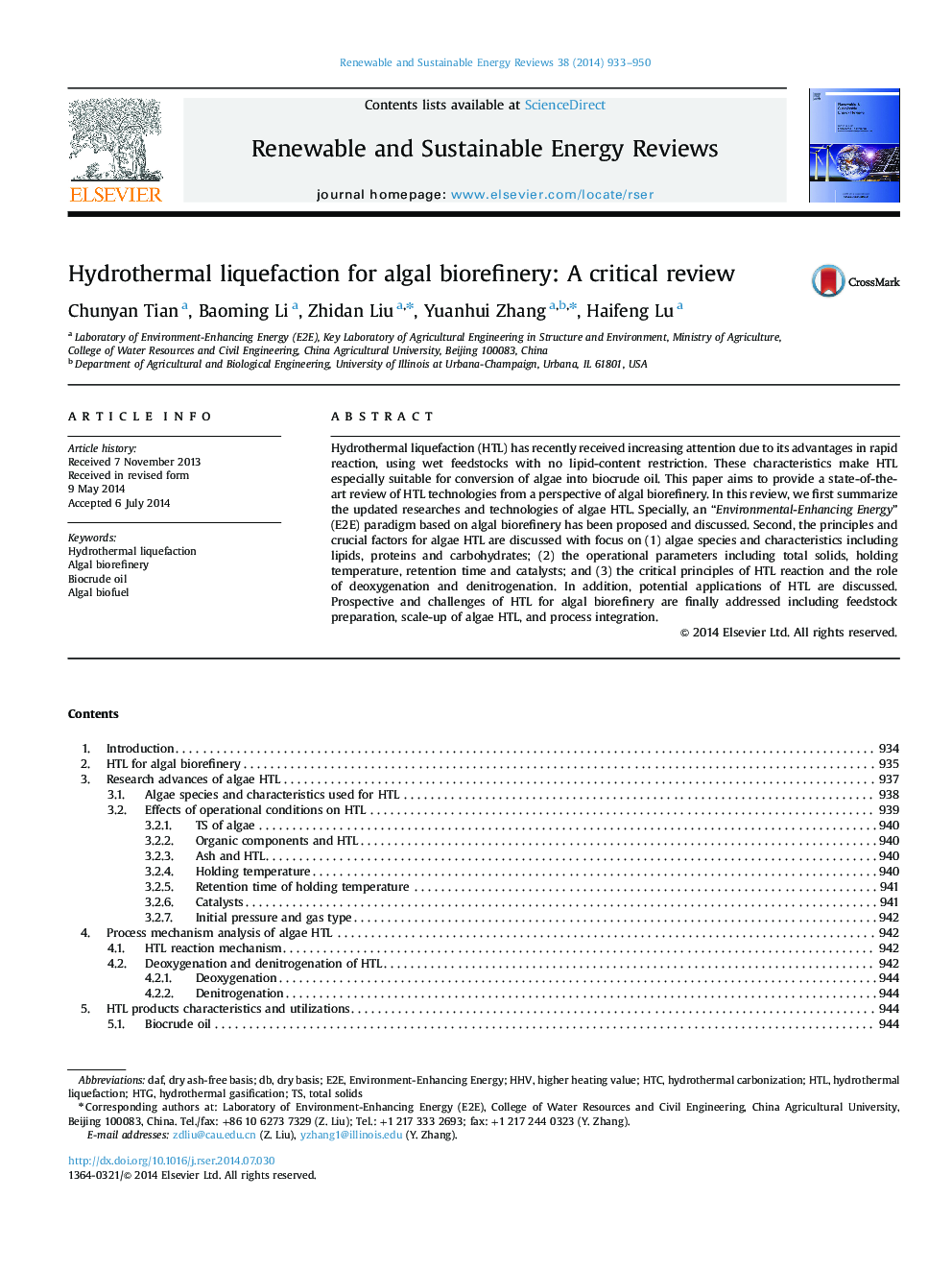| Article ID | Journal | Published Year | Pages | File Type |
|---|---|---|---|---|
| 8119874 | Renewable and Sustainable Energy Reviews | 2014 | 18 Pages |
Abstract
Hydrothermal liquefaction (HTL) has recently received increasing attention due to its advantages in rapid reaction, using wet feedstocks with no lipid-content restriction. These characteristics make HTL especially suitable for conversion of algae into biocrude oil. This paper aims to provide a state-of-the-art review of HTL technologies from a perspective of algal biorefinery. In this review, we first summarize the updated researches and technologies of algae HTL. Specially, an “Environmental-Enhancing Energy” (E2E) paradigm based on algal biorefinery has been proposed and discussed. Second, the principles and crucial factors for algae HTL are discussed with focus on (1) algae species and characteristics including lipids, proteins and carbohydrates; (2) the operational parameters including total solids, holding temperature, retention time and catalysts; and (3) the critical principles of HTL reaction and the role of deoxygenation and denitrogenation. In addition, potential applications of HTL are discussed. Prospective and challenges of HTL for algal biorefinery are finally addressed including feedstock preparation, scale-up of algae HTL, and process integration.
Keywords
Related Topics
Physical Sciences and Engineering
Energy
Renewable Energy, Sustainability and the Environment
Authors
Chunyan Tian, Baoming Li, Zhidan Liu, Yuanhui Zhang, Haifeng Lu,
